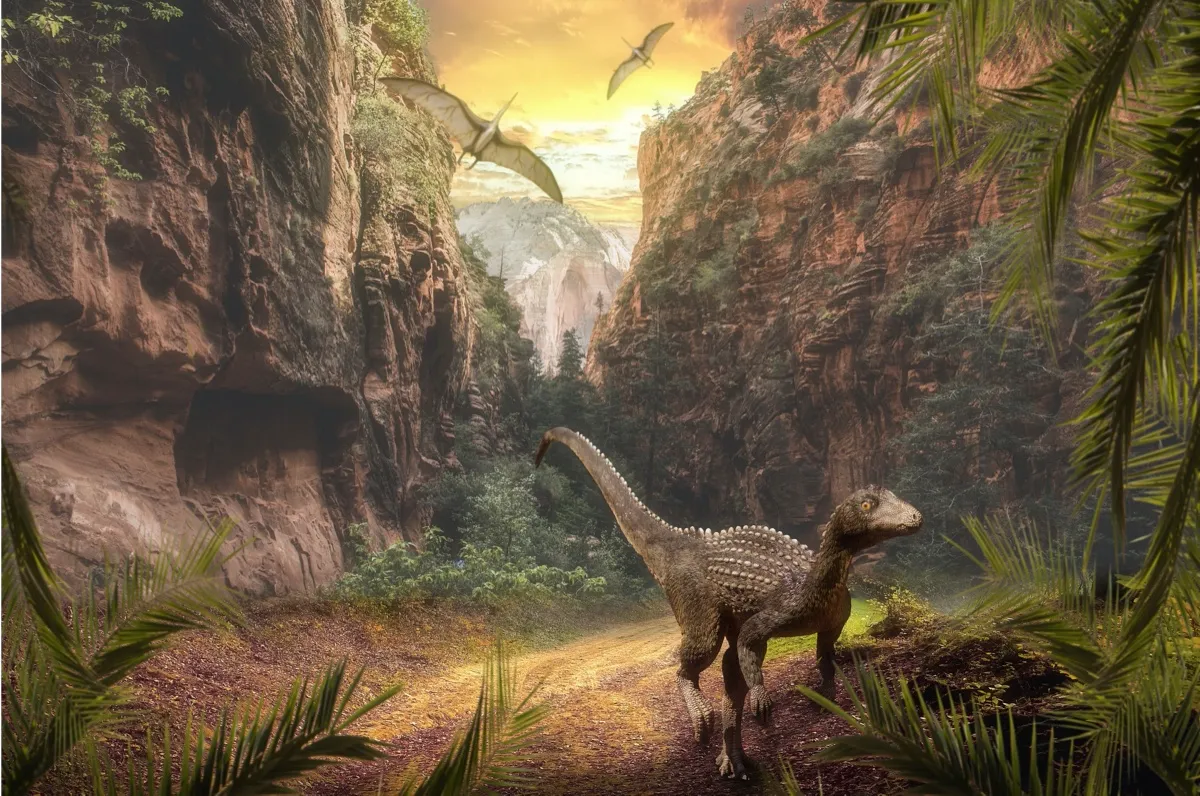Triceratops, Stegosaurus, Tyrannosaurus rex, Diplodocus…it turns out that the hundreds of species of dinosaurs we know today may have arisen because of volcanoes, according to an international team of researchers.
During the late Triassic period, there was a stretch of time known as the Carnian Pluvial Episode (CPE), which ran from 234 to 232 million years ago.
Before the CPE, the supercontinent of Pangaea was dry and arid, but then the CPE came along with its 'mega monsoon climate', leading to an increase in global temperature and humidity. This transformation of conditions had a major impact on plant and animal life.
“Within the space of two million years, the world’s animal and plant life underwent major changes, including selective extinctions in the marine realm and diversification of plant and animal groups on land,” said co-author Prof Jason Hilton. “These events coincide with a remarkable interval of intense rainfall known as the Carnian Pluvial Episode.”
Read more about dinosaurs:
- Dinosaurs wagged their tails while running, simulations reveal
- Dinosaur frills were for attracting mates, not protection
By analysing sediment and fossil records from northern China, the researchers propose that volcanic activity could have led to the significant climate change seen during the CPE.
The researchers found that there were four distinct events during the CPE, with each one being driven by pulses of powerful volcanic activity. These eruptions released enormous amounts of carbon dioxide into the atmosphere, which triggered a rise in global temperature and humidity.
The likely source of these powerful eruptions was the Wrangellia large igneous province, the remnants of which are preserved in North America today.

“Thisrelatively long period of volcanic activity and environmental change would have had considerable consequences for animals on land,” said Dr Emma Dunne, a palaeobiologist at the University of Birmingham, who was not involved in the study.
“At this time, the dinosaurs had just begun to diversify, and it’s likely that without this event, they would never have reached their ecological dominance we see over the next 150 million years.”
As well as dinosaurs, the CPE was also important for the rise of modern conifers, and had a huge impact on the evolution of ferns, crocodiles, turtles, insects and early mammals.
"Around 232 million years ago, the world experienced a burst of rainfall and got a lot more humid. It was around this time that dinosaurs emerged from their small, humble ancestors and began to diversify," said Dr Steve Brusatte, a palaeontologist at the University of Edinburgh, who was not involved in the research. "Although the evidence is a little circumstantial at this point, there's reason to believe this change from drier to more humid conditions helped trigger the rise of dinosaurs."
He added: "This new study takes the story a step further, and implicates big volcanic eruptions as the source of the climate change. Putting the pieces together, it looks like there was a chain reaction in the Triassic: big volcanoes erupt, they change the climate from dry to humid, and that helps catalyse the spread of dinosaurs. This shows how big changes in climate can have big implications for evolution. It's not just that climate changes can cause extinctions, but they can also help certain groups prosper and spread."
About our expert, Dr Steve Brusatte
Steve is a professor of palaeontology and evolution at the University of Edinburgh. He has written more than 110 scientific papers and six books. His latest book is The Rise And Fall Of The Dinosaurs (£9.99, Pan MacMillan).
